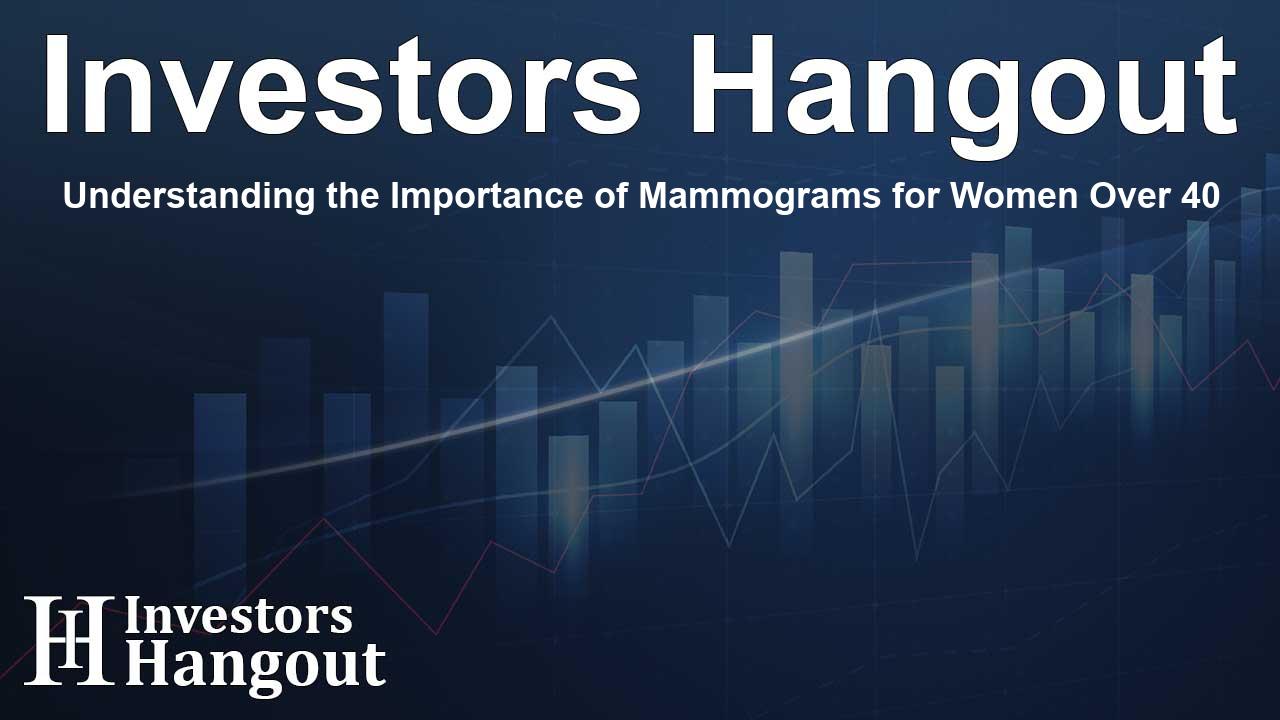Understanding the Importance of Mammograms for Women Over 40

Understanding the Importance of Mammograms for Women Over 40
Recent findings from a national survey conducted by MedStar Health highlight a significant issue regarding breast cancer screenings among women aged 40 and above. Alarmingly, it was revealed that 60% of women do not adhere to the yearly mammogram recommendations set forth by the American College of Radiology, despite the critical role early detection plays in effectively treating breast cancer.
Mammogram Utilization
Among the women surveyed, 21% disclosed that they have never undergone a mammogram. The most common reasons cited for this lack of screening include having had normal results in previous mammograms, as well as concerns over discomfort and the costs associated with the procedure.
The Perception of Pain
Many women harbor fears that mammograms are painful, leading to avoidance of the procedure. However, medical experts stress that the discomfort experienced is significantly less than the complications that can arise from untreated breast cancer. "A mammogram typically takes about 10 minutes, and staying proactive can save lives," stated Dr. Lucy De La Cruz, a leading expert in breast surgery.
Concerns About Breast Health
Interestingly, the survey revealed that 75% of the respondents expressed being at least somewhat concerned about their breast health. However, this concern does not translate into actionable steps like scheduling regular screenings. Experts urge women to start having conversations with their healthcare providers as early as age 30 about their individual breast cancer risk factors, as early intervention is crucial.
Understanding Risk Factors
One of the significant challenges is the lack of awareness surrounding the risks associated with breast cancer. Only 5% of women surveyed were able to identify all the risk factors for breast cancer, which include family history, cigarette smoking, age, and dense breast tissue. Furthermore, only 26% could recognize all symptoms of breast cancer, indicating a critical need for education on the topic.
Dense Breast Tissue and Screening Recommendations
An important update from the FDA mandates that mammography facilities must inform patients if they possess dense breast tissue, which can complicate the detection of cancer. In the survey, it was revealed that only 36% of respondents recognized dense breast tissue as a risk factor.
Dr. Michelle Townsend Day emphasized the importance of consistent imaging, stating, "Regular screenings are essential for spotting potential changes in breast tissue that could indicate cancer. It is vital for women to understand that having a normal mammogram does not guarantee they will not develop breast cancer in the future."
Further Insights from the Survey
Several other insights emerged from the survey that underscore the importance of regular breast health assessments:
- 30% of women aged 18 and older do not visit a gynecologist.
- 18% claim to skip mammograms due to a lack of family history with breast cancer, which Dr. Day warns should not determine whether to pursue screening.
- Only about 36% recognized that dense breast tissue increases the risk of breast cancer.
- Moreover, awareness of symptoms is crucial, yet many women remain uninformed about warning signs.
These findings point toward a critical gap in awareness and education about breast health, emphasizing the need for increased outreach and clarification on the importance of mammograms for early detection. Women are encouraged to discuss their risk factors with their healthcare providers and establish a reliable screening schedule.
Frequently Asked Questions
What is the recommended age for women to begin mammograms?
Medical experts recommend that women should start discussing their personal breast cancer risk with their doctors around age 30.
How can women reduce their fears about mammograms?
Understanding the actual procedure, its benefits, and how quick it is can help alleviate fears. Engaging with healthcare professionals for support is also beneficial.
Why is regular mammogram screening essential?
Mammograms are key for early detection of breast cancer, which greatly increases treatment success rates.
What should I do if I have dense breast tissue?
Discuss with your doctor the possibility of additional screenings, such as breast MRI, to ensure thorough monitoring.
What are the symptoms of breast cancer that women should watch for?
Symptoms include unusual lumps, changes in breast shape or size, and discharge from the nipple, among others.
About Investors Hangout
Investors Hangout is a leading online stock forum for financial discussion and learning, offering a wide range of free tools and resources. It draws in traders of all levels, who exchange market knowledge, investigate trading tactics, and keep an eye on industry developments in real time. Featuring financial articles, stock message boards, quotes, charts, company profiles, and live news updates. Through cooperative learning and a wealth of informational resources, it helps users from novices creating their first portfolios to experts honing their techniques. Join Investors Hangout today: https://investorshangout.com/
Disclaimer: The content of this article is solely for general informational purposes only; it does not represent legal, financial, or investment advice. Investors Hangout does not offer financial advice; the author is not a licensed financial advisor. Consult a qualified advisor before making any financial or investment decisions based on this article. The author's interpretation of publicly available data shapes the opinions presented here; as a result, they should not be taken as advice to purchase, sell, or hold any securities mentioned or any other investments. The author does not guarantee the accuracy, completeness, or timeliness of any material, providing it "as is." Information and market conditions may change; past performance is not indicative of future outcomes. If any of the material offered here is inaccurate, please contact us for corrections.